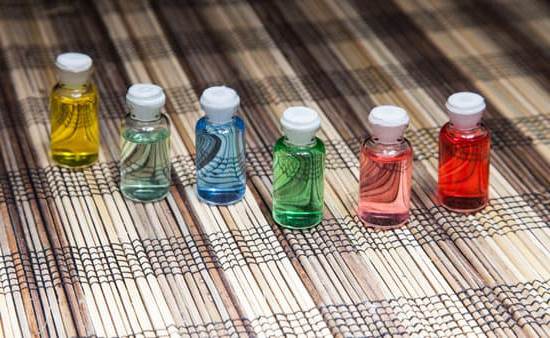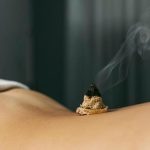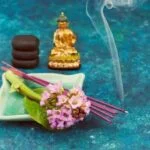Are you looking to enhance your well-being with the natural power of essential oils? In this article, we will explore how to use essential oils for aromatherapy naturals, covering everything from their benefits and different methods of application to creating custom blends and incorporating them into your daily self-care routine. Whether you are a beginner or an experienced user, this comprehensive guide will provide valuable insights into the world of essential oils and aromatherapy.
Essential oils have been used for centuries for their therapeutic properties and aromatic benefits. Derived from plants, these concentrated oils are known for their ability to promote relaxation, improve mood, and support overall health and wellness. In the following sections, we will delve into the various ways essential oils can be used in aromatherapy and the specific benefits they offer.
Discover the different methods of applying essential oils, including diffusers, inhalation, and topical application. Learn about safe practices for using essential oils effectively and harnessing their full potential.
Additionally, we will highlight popular essential oils such as lavender, peppermint, and tea tree oil, exploring their individual benefits when used in aromatherapy. If you’re ready to embark on a journey of self-discovery and holistic wellness through the power of nature’s aromatics, read on to unlock the potential of essential oils in your daily life.
Different Ways to Use Essential Oils
When it comes to using essential oils for aromatherapy, there are various methods of application to consider. One of the most popular ways to enjoy the benefits of essential oils is through diffusion. Using a diffuser allows the oil to be dispersed into the air, filling the room with its aromatic properties.
Another method is inhalation, where a few drops of essential oil are added to a bowl of steaming water, allowing the scent to be inhaled. Additionally, topical application involves diluting essential oils with a carrier oil and applying them directly to the skin.
It’s important to use essential oils safely and effectively. Always read and follow the instructions on the label of each essential oil product. When using a diffuser, make sure to add the recommended amount of oil and water for your specific device. When applying topically or inhaling, start with a small amount and gradually increase as needed. It’s also crucial to do a patch test before applying any new essential oil directly onto your skin.
| Method | Description |
|---|---|
| Diffusion | Using a diffuser to disperse essential oils into the air |
| Inhalation | Adding a few drops of essential oil to steaming water for inhalation |
| Topical Application | Diluting essential oils with carrier oil and applying them directly onto the skin |
Popular Essential Oils and Their Benefits
When it comes to using essential oils for aromatherapy, there are several popular options that offer a range of benefits. Lavender essential oil is known for its calming and relaxing properties, making it an excellent choice for promoting sleep and reducing anxiety.
Peppermint essential oil is often used for its invigorating and refreshing scent, and can help with mental clarity and alleviating headaches. Tea tree oil is appreciated for its antibacterial and antifungal properties, making it a go-to option for treating skin conditions and purifying the air.
Each essential oil has its own unique set of benefits, making it important to understand how to use them effectively in aromatherapy. For example, lavender oil can be diffused at bedtime to promote restful sleep, while peppermint oil can be inhaled or applied topically to provide a quick energy boost. Understanding the specific benefits of each essential oil will help you maximize their effectiveness in your aromatherapy practice.
When it comes to creating custom aromatherapy blends, experimenting with different combinations of essential oils can lead to unique scents and therapeutic effects. For example, blending lavender with chamomile can enhance relaxation, while combining peppermint with eucalyptus can create an uplifting and refreshing blend. By exploring the benefits of different essential oils and learning how to blend them together, you can create personalized aromatherapy experiences tailored to your specific needs.
Knowing the unique benefits of popular essential oils is key to unlocking the full potential of aromatherapy. Whether you’re seeking relaxation, relief from stress, or a mood boost, understanding how to use essential oils in aromatherapy will allow you to harness their natural benefits for overall well-being.
Creating Your Own Essential Oil Blends
When it comes to using essential oils for aromatherapy naturals, creating your own blends allows you to tailor the scent and benefits to your specific needs. Whether you’re looking to promote relaxation, focus, or simply enjoy a pleasant aroma, blending essential oils can provide a personalized experience. Here are some tips for creating your own essential oil blends:
- Understand the Properties of Different Essential Oils
- Start with Simple Combinations
- Use Recipes as a Starting Point
Before creating a blend, it’s important to understand the properties and benefits of different essential oils. For example, lavender is known for its calming effects, while citrus oils like lemon and orange are uplifting and energizing. By familiarizing yourself with the characteristics of each oil, you can create blends that serve your intended purpose.
If you’re new to blending essential oils, start with simple combinations of two or three oils. This allows you to experiment with different scents without feeling overwhelmed. For example, a popular calming blend consists of lavender, bergamot, and chamomile essential oils. As you gain confidence in blending oils, you can gradually incorporate more complex combinations.
While creating your own blends is a creative and personal process, using existing recipes as a starting point can be helpful. There are countless resources available online and in aromatherapy books that provide tried-and-true blend combinations for specific purposes such as relaxation, stress relief, or mood enhancement.
Incorporating custom essential oil blends into your aromatherapy naturals practice allows you to reap the unique benefits of each oil while enjoying a scent that is tailored to your preferences. By understanding the properties of different essential oils, starting with simple combinations, and using recipes as a guide, you can create blends that enhance your well-being and uplift your environment through the power of aromatherapy naturals.
Using Essential Oils for Relaxation and Stress Relief
Essential oils are a popular natural remedy for relaxation and stress relief. The use of essential oils in aromatherapy can help to promote feelings of calmness and reduce tension, making it a valuable tool in managing everyday stress. In this section, we will explore the different ways in which essential oils can be used to achieve relaxation and alleviate stress, as well as the recommended essential oils for these purposes.
Methods for Using Essential Oils
There are several methods for using essential oils to promote relaxation and reduce stress. One common method is through diffusion, where essential oils are added to a diffuser and then released into the air. Inhalation is another effective way to enjoy the benefits of essential oils for relaxation, whether by adding a few drops to a tissue or using an inhaler. Additionally, topical application through massage or adding a few drops to a warm bath can also provide relaxation benefits.
Recommended Essential Oils
Several essential oils are known for their calming and soothing effects on the mind and body. Lavender essential oil is one of the most popular choices for promoting relaxation and reducing anxiety. Its gentle floral aroma can help to calm the nervous system and induce feelings of tranquility. Another well-regarded oil for stress relief is chamomile, especially Roman chamomile, which has been traditionally used to calm nerves and support emotional balance.
Tips for Effective Use
When using essential oils for relaxation and stress relief, it’s important to choose high-quality oils from reputable sources. Additionally, proper dilution is crucial when applying essential oils topically to avoid skin irritation or adverse reactions. It’s also recommended to start with small amounts of oil and gradually increase as needed, as sensitivity varies from person to person.
By following these guidelines on how to use essential oils aromatherapy naturalsaromatherapy naturals effectively, individuals can experience the natural benefits of aromatherapy in promoting relaxation and reducing stress without the need for synthetic substances or medications.
Essential Oils for Mood Enhancement and Mental Clarity
Essential Oils for Mood Enhancement
When it comes to using essential oils for mood enhancement, there are several options to consider. Citrus essential oils such as orange, lemon, and grapefruit are known for their uplifting and energizing properties. These oils can help promote feelings of happiness and positivity when diffused in a room or added to a personal inhaler.
Additionally, floral essential oils like rose, jasmine, and ylang-ylang are often used to improve mood and reduce feelings of anxiety or depression. These oils have a calming and soothing effect on the mind and emotions.
Essential Oils for Mental Clarity
To improve mental clarity and focus, certain essential oils can be especially beneficial. Peppermint oil is well-known for its invigorating scent that can help stimulate the mind and increase alertness. Similarly, eucalyptus oil has a refreshing aroma that can clear the mind and enhance concentration.
Rosemary oil is another popular choice for mental clarity, as it is believed to support cognitive function and memory retention. These oils can be diffused in a workspace or added to a personal inhaler to aid in mental focus and productivity.
Using Essential Oils Safely for Mood Enhancement and Mental Clarity
It’s important to remember that essential oils are highly concentrated substances and should be used with care. When using essential oils for mood enhancement or mental clarity, it’s best to dilute them properly before applying them to the skin or using them in a diffuser.
Additionally, some individuals may have sensitivities or allergies to certain essential oils, so it’s crucial to perform a patch test before using them extensively. Always follow recommended guidelines for use and consult with a healthcare professional if you have any concerns about incorporating essential oils into your routine.
Incorporating Essential Oils Into Skincare and Self-Care Routine
Using essential oils for skincare and self-care can provide a natural and aromatic way to enhance your daily routine. When used properly, essential oils can offer numerous benefits for the skin, including anti-inflammatory, antibacterial, and anti-aging properties. Additionally, the soothing and calming effects of certain essential oils can contribute to a more relaxing self-care experience.
One way to incorporate essential oils into your skincare routine is by adding a few drops of your chosen oil to a carrier oil, such as coconut or jojoba oil, before applying it to the skin. This can help protect against potential skin irritation from using undiluted essential oils directly on the skin.
Some popular essential oils for skincare include lavender, tea tree oil, and frankincense, each offering unique benefits such as reducing acne, promoting healing of minor wounds, and improving skin tone.
In addition to skincare, essential oils can also be used in other self-care practices such as aromatherapy massage or in a relaxing bath. By adding a few drops of your favorite essential oil to a carrier oil or unscented lotion, you can create a custom massage blend that promotes relaxation while providing benefits for the skin.
You can also add essential oils to bath salts or directly into the bathwater for a spa-like experience at home. These simple techniques allow you to enjoy the therapeutic effects of essential oils while taking care of both your skin and overall well-being.
| Benefits | Recommended Essential Oils |
|---|---|
| Anti-inflammatory properties | Lavender, Chamomile |
| Antibacterial properties | Tea Tree Oil, Eucalyptus |
| Anti-aging benefits | Frankincense, Rosemary |
Safety Precautions and Considerations for Using Essential Oils
When using essential oils for aromatherapy, it is important to be mindful of safety precautions and considerations to ensure a positive and beneficial experience. Here are some guidelines to keep in mind:
1. Proper Dilution: Essential oils are highly concentrated and should always be diluted before applying to the skin. It is recommended to use a carrier oil, such as almond oil or coconut oil, when applying essential oils topically. The general rule of thumb is to use about 2-3 drops of essential oil per teaspoon of carrier oil.
2. Potential Risks: Some essential oils can cause skin irritation or allergic reactions in certain individuals. Before using any new essential oil, it is advisable to perform a patch test by applying a small amount of diluted oil to the skin and observing for any adverse reactions.
3. Precautions for Special Populations: When using essential oils around children, pets, or during pregnancy, it is important to take extra precautions. Certain essential oils can be harmful or toxic when ingested or inhaled by pets, and some oils may not be safe for use during pregnancy.
4. Storage and Handling: Essential oils should be stored in dark glass bottles in a cool, dry place away from direct sunlight and heat. It’s also important to handle essential oils with care and avoid contact with eyes or mucous membranes.
5. Consultation with a Professional: If you have any concerns or questions about using essential oils, especially if you have underlying health conditions or are taking medication, it is best to consult with a qualified aromatherapist or healthcare professional for personalized guidance.
By being mindful of these safety precautions and considerations, you can enjoy the benefits of essential oils for aromatherapy while minimizing potential risks and ensuring a safe and enjoyable experience.
Finding Quality Essential Oils and Aromatherapy Products
In conclusion, essential oils have been used for centuries in aromatherapy to promote physical and mental well-being. Learning how to use essential oils for aromatherapy naturals can greatly enhance your self-care routine and provide numerous benefits. Whether you are looking to reduce stress, improve your mood, or simply enjoy the pleasant scents, there are various ways to incorporate essential oils into your daily life.
When seeking quality essential oils and aromatherapy products, it is crucial to research reputable brands and sources. Look for companies that prioritize purity, transparency in sourcing, and sustainable practices. Additionally, consider factors such as the extraction method used and any third-party testing certifications to ensure high-quality products.
As you explore different methods of using essential oils, it’s important to prioritize safety and proper dilution techniques. Essential oils are potent substances that should be used with care, especially when considering topical application or inhalation. Always follow recommended guidelines and take precautions when using essential oils around children, pets, and during pregnancy.
Incorporating essential oils into your daily routine can not only enhance your self-care practices but also contribute to a healthier lifestyle overall. By understanding how to use essential oils for aromatherapy naturals effectively and responsibly, you can experience the vast array of benefits that these natural remedies have to offer.
Frequently Asked Questions
How Do You Use Natural Aromatherapy Essential Oils?
Natural aromatherapy essential oils can be used in a variety of ways. They can be diffused using a diffuser, added to a carrier oil for massage, or even diluted and applied directly to the skin. Some people also add a few drops to their bathwater for a relaxing experience.
How Do You Use Aromatherapy Body Oils?
Aromatherapy body oils are typically used by massaging them into the skin. The process of massaging the oil into the skin not only allows for absorption of the beneficial properties of the oil but also provides a calming and soothing sensory experience.
How Do You Use Aromatherapy Devices?
Aromatherapy devices come in various forms, such as diffusers, inhalers, and even jewelry. Diffusers are popular for dispersing essential oils throughout a room, while inhalers provide a more concentrated aroma for personal use. Aromatherapy jewelry, like necklaces and bracelets, allow individuals to benefit from essential oils throughout the day through inhalation or skin contact.

Are you looking for a natural way to improve your health and wellbeing?
If so, aromatherapy may be the answer for you.






